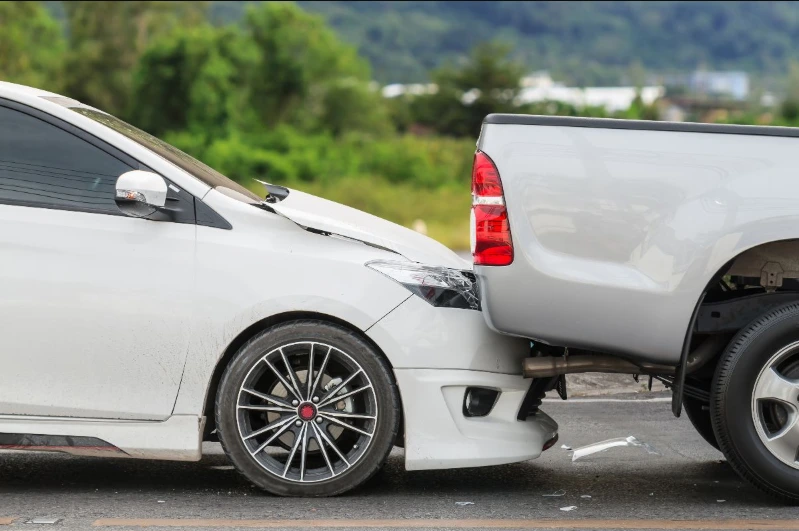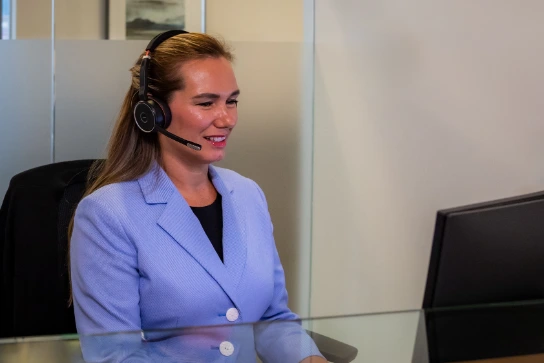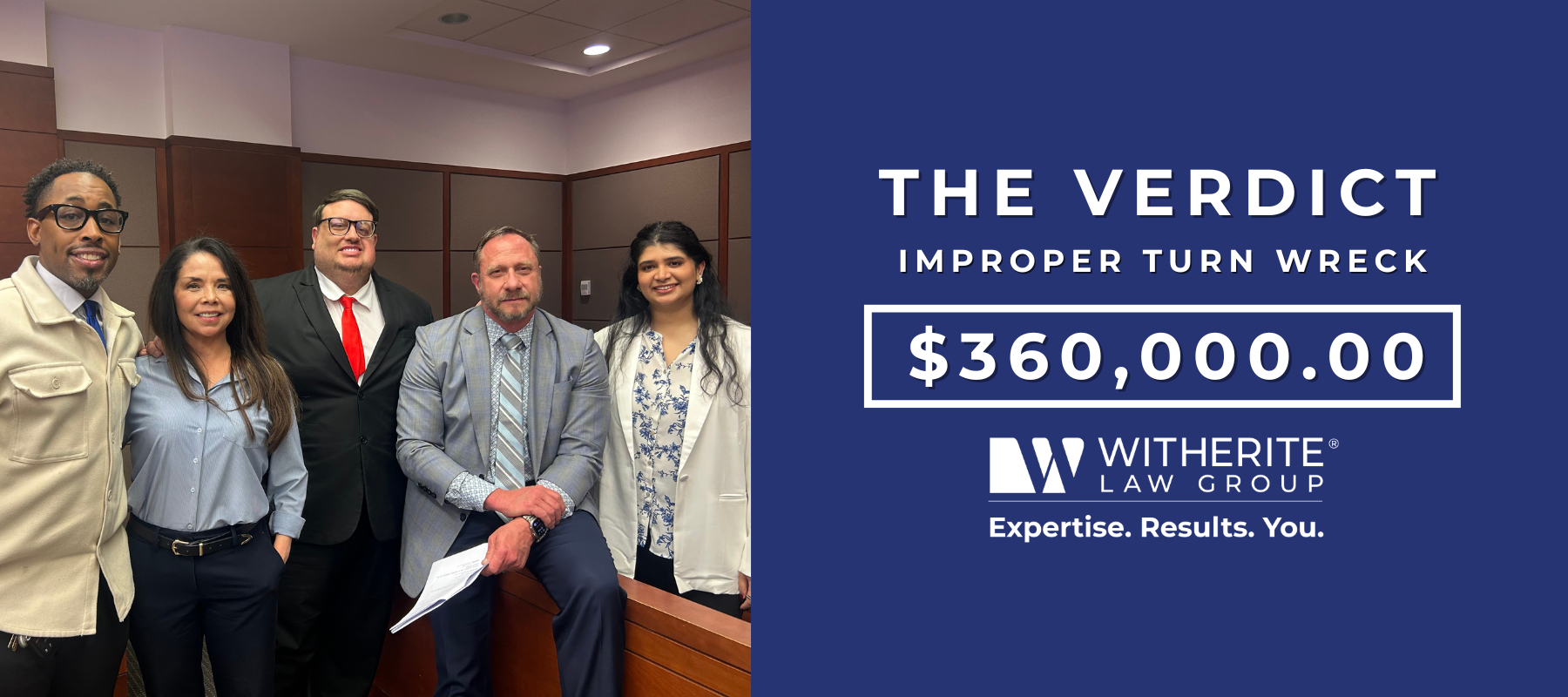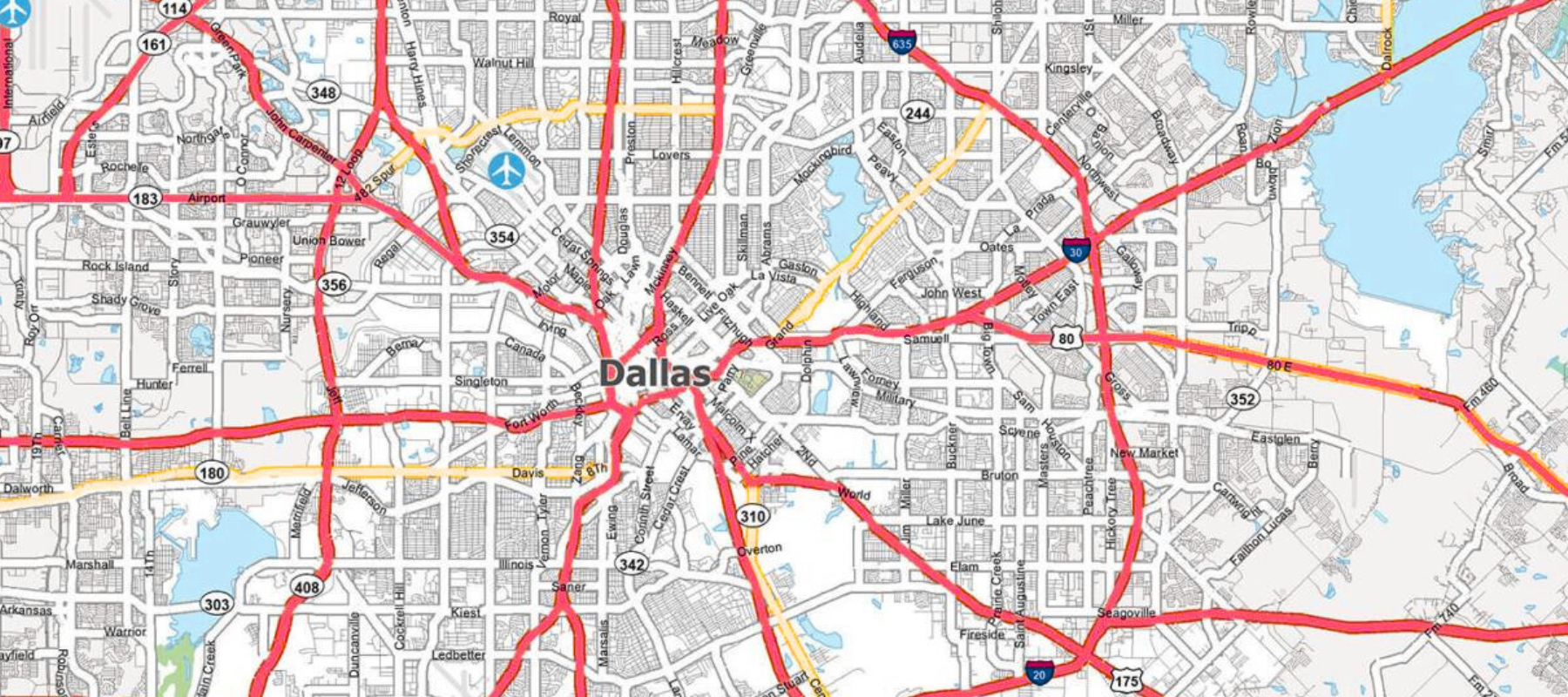You're driving through Dallas, navigating a tight intersection in Chicago, or easing into your lane on I-75 in Atlanta, when out of nowhere — bam — you're rear-ended.
You look in the mirror expecting to see a driver. But there’s no one there. You've just been hit by a self-driving car.
Who’s responsible for this?
Is it the person inside the car? The company that made it?
And how do you even begin to prove what went wrong?
They’re the real questions we answer every day at Witherite Law Group. If you’ve been rear-ended by a self-driving or driver-assist vehicle, we know exactly what needs to happen next, and we’ve got the team ready to fight for you.
How Witherite Law Group Can Help You After a Self-Driving Car Wreck
These vehicles are being pushed out onto the streets faster than the safety systems can keep up. They're marketed as safe, intelligent, and capable. But that’s far from the full truth.
The reality? People are getting hurt. Pedestrians. Drivers. Passengers.
And when you're rear-ended by a self-driving car, you're not just dealing with one bad driver — you’re up against an entire ecosystem of tech companies, automakers, and insurers trying to protect their bottom line.
Real-World Proof: Zoox Crash Shows These Systems Are Still Not Ready
In April 2025, Zoox, Amazon’s self-driving robotaxi unit, had to recall its entire fleet after one of its autonomous vehicles caused a crash in Las Vegas. The vehicle wasn’t even carrying passengers at the time, but the software couldn’t handle another car merging ahead of it, and it made a critical error.
Here’s what’s worse: The Zoox system couldn’t safely operate above 40 miles per hour. That’s it. Forty. Anything higher, and the software started to fall apart.
Now ask yourself — how often do you drive below 40 mph on the highway? That’s not just a minor glitch. That’s a fundamental failure and proof that many of these vehicles aren’t safe in real-world conditions. Yet they’re still out there, testing on public roads, putting you and your family at risk.
Common Injuries from Rear-End Self-Driving Car Wrecks
Rear-end crashes cause damage, period. Whether it's a driver or a machine behind the wheel, the force of impact can cause:
- Herniated discs
- Concussions
- Joint and soft tissue injuries
- Long-term nerve damage
Even worse? The pain doesn’t always show up right away. And insurance companies will use that delay to claim you’re not really hurt.
How Our In-House Medical Team Helps Protect Your Claim
We don’t leave your recovery up to chance.
Our in-house medical team works directly with our attorneys to:
- Document your injuries from the start
- Help you access specialists and follow-up care
- Ensure your medical records support your case, not hurt it
- Fight back when insurance tries to downplay your pain
We handle the legal and medical complexity so you can focus on healing.
Contact Witherite Law Group: The Firm That Knows How to Handle Self-Driving Crashes
Self-driving technology is evolving, but people like you shouldn’t have to pay the price for their mistakes.
If you’ve been rear-ended by a self-driving vehicle in Dallas, Fort Worth, Atlanta, or Chicago, you need a team that can go toe-to-toe with the automakers and tech companies.
We don’t get intimidated. We get results.
Contact Witherite Law Group now for a free consultation. We’ll preserve the crash data, dig into the digital logs, and hold the right people accountable.
You don’t pay a dime unless we win. And we’re available 24/7 — with bilingual support and real people ready to help.
-p-500.png)




